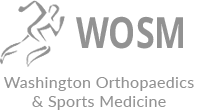Throughout the last decade, we’ve experienced a boom in anticoagulation options to help prevent venous thromboembolism (VTE) associated with orthopaedic procedures. The use of aggressive anticoagulation, such as warfarin and various heparin formulations, is being questioned, largely due to concerns about bleeding risks and wound complications. Along with the newer direct oral anticoagulants such as rivaroxaban, over-the-counter aspirin (ASA) is gaining prominence as an anticoagulant due to its high efficacy, low cost, convenience for patients, favorable side-effect profile, and cardioprotective attributes. Current guidelines include the use of all these thromboprophylactic agents, but three recent studies lend credence to using aspirin as the primary VTE prophylactic agent when performing total joint arthroplasty (TJA).


